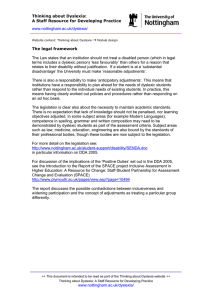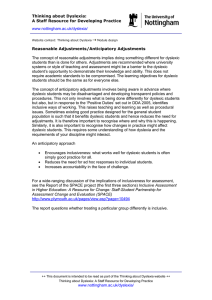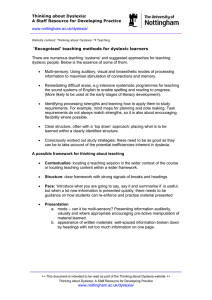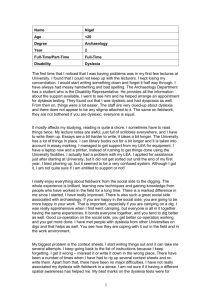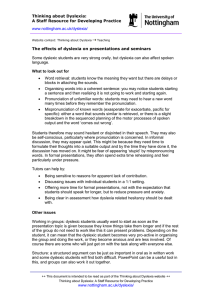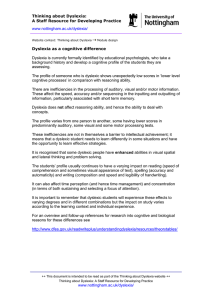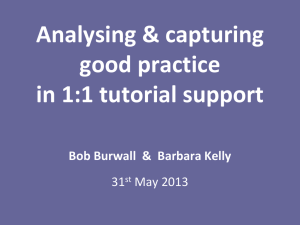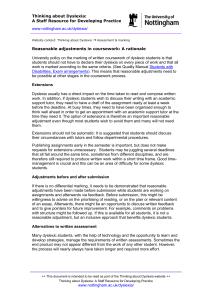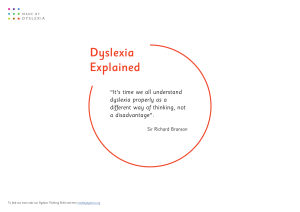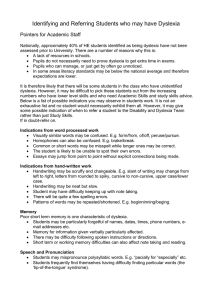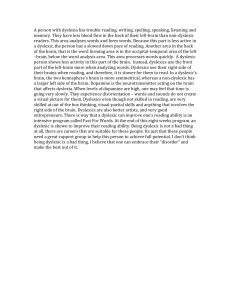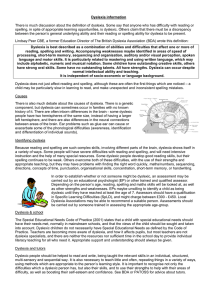Thinking about Dyslexia: A Staff Resource for Developing Practice
advertisement
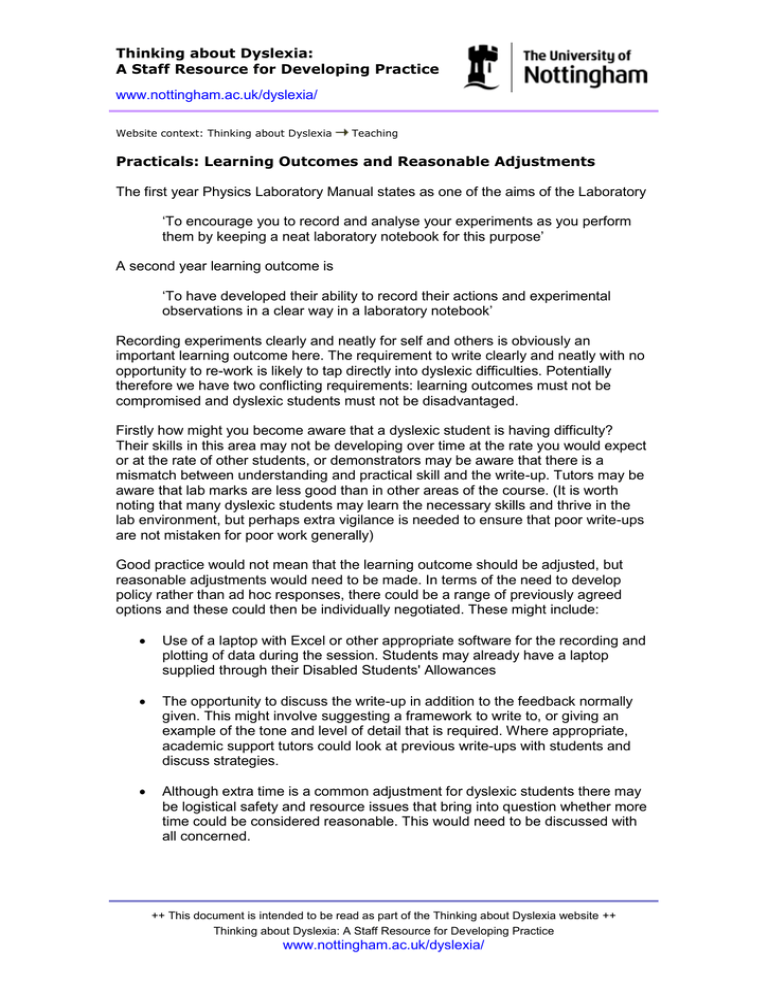
Thinking about Dyslexia: A Staff Resource for Developing Practice www.nottingham.ac.uk/dyslexia/ Website context: Thinking about Dyslexia Teaching Practicals: Learning Outcomes and Reasonable Adjustments The first year Physics Laboratory Manual states as one of the aims of the Laboratory ‘To encourage you to record and analyse your experiments as you perform them by keeping a neat laboratory notebook for this purpose’ A second year learning outcome is ‘To have developed their ability to record their actions and experimental observations in a clear way in a laboratory notebook’ Recording experiments clearly and neatly for self and others is obviously an important learning outcome here. The requirement to write clearly and neatly with no opportunity to re-work is likely to tap directly into dyslexic difficulties. Potentially therefore we have two conflicting requirements: learning outcomes must not be compromised and dyslexic students must not be disadvantaged. Firstly how might you become aware that a dyslexic student is having difficulty? Their skills in this area may not be developing over time at the rate you would expect or at the rate of other students, or demonstrators may be aware that there is a mismatch between understanding and practical skill and the write-up. Tutors may be aware that lab marks are less good than in other areas of the course. (It is worth noting that many dyslexic students may learn the necessary skills and thrive in the lab environment, but perhaps extra vigilance is needed to ensure that poor write-ups are not mistaken for poor work generally) Good practice would not mean that the learning outcome should be adjusted, but reasonable adjustments would need to be made. In terms of the need to develop policy rather than ad hoc responses, there could be a range of previously agreed options and these could then be individually negotiated. These might include: Use of a laptop with Excel or other appropriate software for the recording and plotting of data during the session. Students may already have a laptop supplied through their Disabled Students' Allowances The opportunity to discuss the write-up in addition to the feedback normally given. This might involve suggesting a framework to write to, or giving an example of the tone and level of detail that is required. Where appropriate, academic support tutors could look at previous write-ups with students and discuss strategies. Although extra time is a common adjustment for dyslexic students there may be logistical safety and resource issues that bring into question whether more time could be considered reasonable. This would need to be discussed with all concerned. ++ This document is intended to be read as part of the Thinking about Dyslexia website ++ Thinking about Dyslexia: A Staff Resource for Developing Practice www.nottingham.ac.uk/dyslexia/
